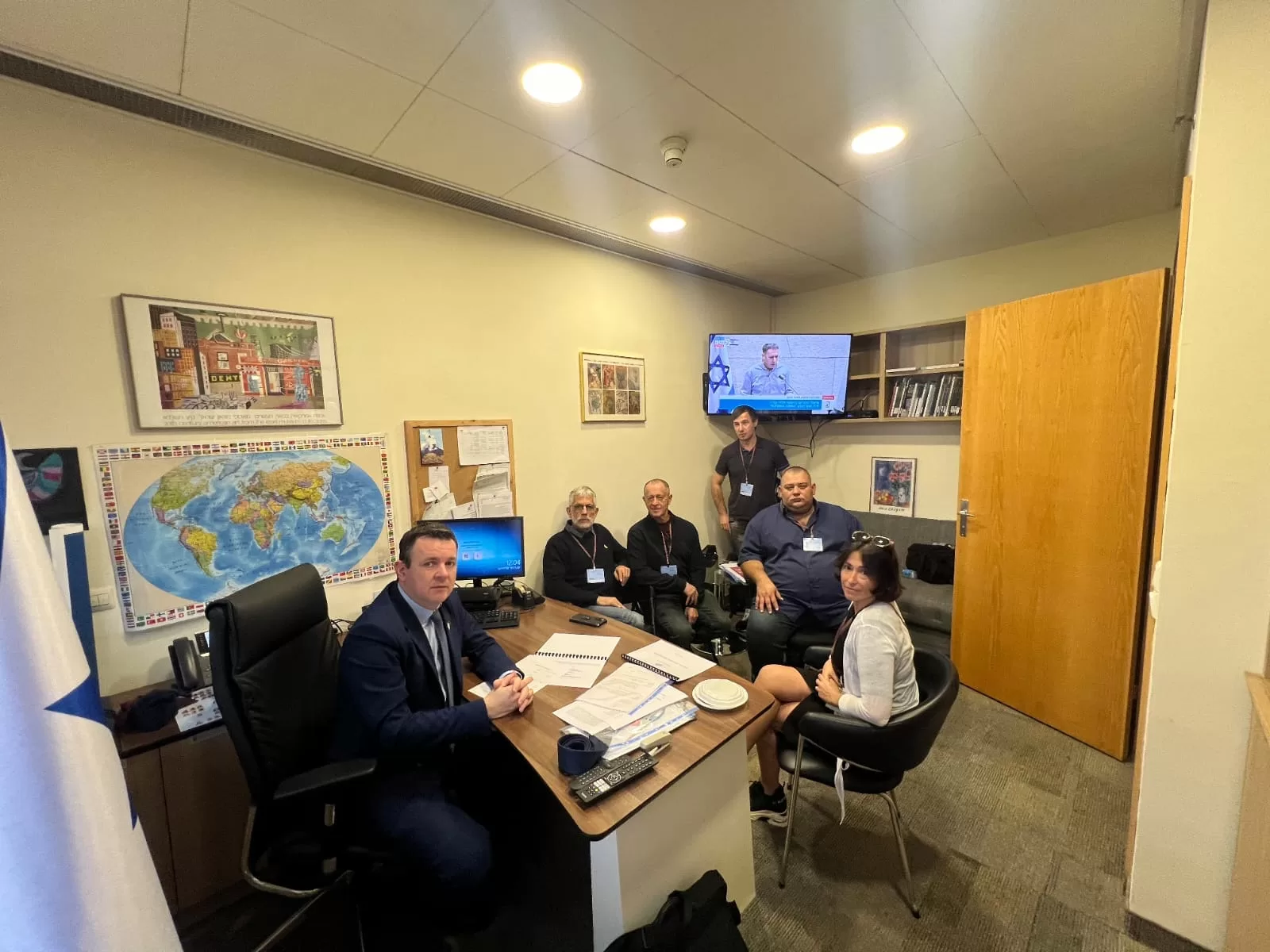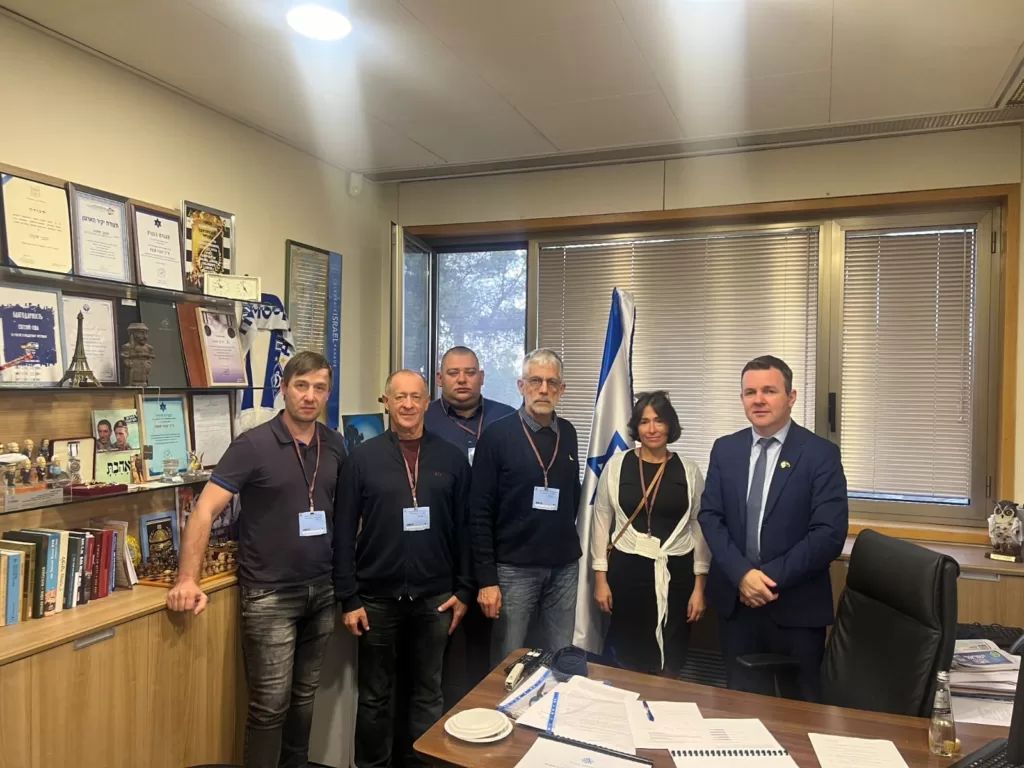
On December 6, 2023, the Dor Moriah NGO held an expert meeting in the Knesset with NDI MP Eugene Sowa. The topic of the meeting was the discussion of the results of sociological research of the Analytical Center “Dor Moria” conducted in November 2023. The discussion focused on self-organization of the population and its influence on political decision-making, the prospects for Israel after the war, and other sensitive topics that divide Israeli society.
A bit of tedious theory
Any public organization is created as an instrument for solving specific public tasks or problems of a certain group of people.
Such organizations can be conditionally divided into two spheres of activity: socio-economic and socio-political. And if socio-economic activity consists, by and large, in the redistribution of resources to solve the problems of the organization’s clients, socio-political activity is connected with the influence of non-political subjects (population groups) on the adoption and implementation of political decisions, changing the public discourse and influencing the change of state or municipal policy.
Sociological research is one of the tools used, including by public organizations, to identify social problems, trends and risks.
They not only allow us to describe the problem, but are also the basis for the formation of certain political demands, and thus, in part, a tool to influence political decision-making.
This is why it is important to communicate the results of sociological research to policy makers.
The studies implemented by our center reflect the deep disintegration processes taking place in our society, fraught with risks of increasing confrontation between different social groups, destabilization of the socio-political system. In order to bring this data to the people responsible for political decisions, members of the NGO Dor Moriah decided to organize a decision to meet with the Knesset deputy.
The aesthetic pleasures of political discussion
When we were preparing for the Knesset meeting, many Dor Moriah experts had been closely following Eugene Sova‘s speeches for a long time, including on Channel 9. I will express a general opinion: Yevgeny Sova is one of the most adequate and professional deputies of the Knesset and not only among Russian-speaking deputies.
And this initial opinion was fully confirmed by a personal meeting and a two-hour discussion of the most pressing problems of modern Israel.
I want to say that I have enjoyed this discussion not only intellectually but also aesthetically. Evgeny Sova showed an amazing command of figures, general conceptual vision and knowledge of the situation on all the topics that were raised at the meeting.
Preparing for the meeting, the experts of our organization for a long time closely followed the speeches of Yevgeny Sova, including on Channel 9, as a result of which we have formed the opinion that Yevgeny Sova is one of the most adequate and professional deputies of the Knesset and not only among Russian-speaking deputies.

Peculiarities of Israeli sociology
It is not uncommon to hear a skeptical assessment of sociology as a highly subjective science. Polls are often seen as a means of manipulating the public mind and an extremely easy thing to do. The results of which are prepared almost “on your knees”.
And, as it is not unfortunate, but the information obtained through sociological surveys is indeed often used not as a tool for objective assessment of the situation, but as a tool for justification of one’s political position or an instrument of information warfare. Many polls conducted in Israel do not always boast the necessary sampling and rigorous scientific approach to surveying. Let’s not delve into the issues so as not to offend anyone, but, for example, a “face to face” survey, with a fully representative sample and 1000 respondents was conducted by government agencies 5 years ago, and cost about 180,000 shekels.
So, naturally, part of our conversation centered on the representativeness of our study. According to a questionnaire developed by the Dor Moriah Analytical Center, the poll was conducted by the Ma’agar Mohot sociological center under the direction of Professor Yitzhak Katz.
Eugene Sova showed an impressive knowledge of all the nuances and challenges of conducting surveys and securing a sample in Israel. In general, it can be said from the discussion that our results are a tool for preparing policy decisions. You can work with them.
Self-organization as a political trend
We discussed many interesting topics in two hours of discussion. That and the economic boost that the big aliyah brought to Israel. The arrival of highly qualified specialists from the former Soviet Union made it possible to attract some 160 billion shekels on the 55 billion shekels spent on repatriation, including savings on training, doctors, engineers, teachers, etc.
We also discussed the internal processes taking place in some of Israel’s closed and close-knit communities, which are showing stable results in the Knesset elections. And the questions of Israel’s future after the war, and many others.
But for me and the other Dor Moriah experts, the overriding theme was the strengthening of solidarity in Israeli society through mechanisms of self-organization of the population.
We are talking, first of all, about local communities, public-territorial management – house committees, street committees, and other similar public self-governing structures organized on the principle of residence. Such structures allow residents of cities, districts, streets to solve their problems through the awareness of their belonging to a certain area, people; practical involvement in the processes taking place in the community, which maximally promotes the involvement of people in governance, increasing the transparency and openness of government, as well as the responsibility of people for the situation in their place of residence. And this is an effective mechanism for improving the quality of life of people and communities as a whole.
We can talk about the formation of social capital on the basis of local patriotism. This process is called self-organization and becomes especially important in modern large cities where many people and different resources are concentrated.
The cities of the USA and EU countries are characterized by the coverage of the whole territory of the city by the areas of public self-organization.
In Israel, such structures should be established as sub-structures of city councils (district, neighborhood, street). Decentralization of local politics and involvement of the population in active solution of problems of their localities is the main task of creation of self-organization bodies of the population.
In our opinion, this will reduce the politicization of local authorities and bring city councils closer to the final consumer – the citizens. At the same time, competition for money from local budgets will intensify, as self-organizing bodies of the population will also be able to apply for municipal funding, as well as public and charitable organizations. DOS can have funding that is not just earmarked, for delegated authority.
But this topic has generated maximum discussion as according to Eugene Sova, it is difficult to realize especially after the local elections to be held in January 2024.
Nevertheless, in our opinion, the registration of the lobby “For the Decentralization of Israel and the Self-Organization of the Population” has an important socio-political significance. Because it will elevate the discussion of solidarization of Israeli society to the level of the Knesset
Instead of an epilogue
Beautiful, competent speech of Eugene, validity of his judgments and assessments, goal-oriented and correctness in the discussion, as well as not formal readiness to support our initiatives, to get involved in solving the problems we voiced – were the dominant impressions of this politician.
